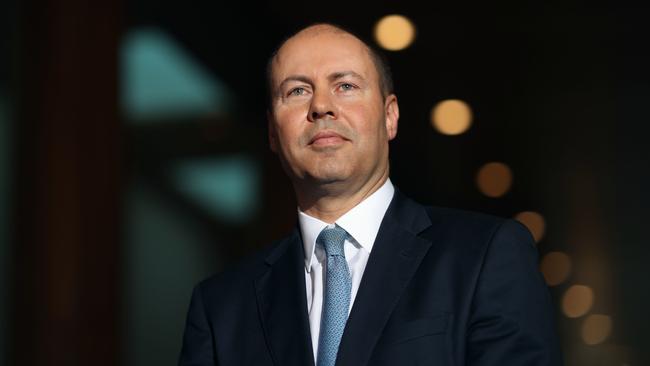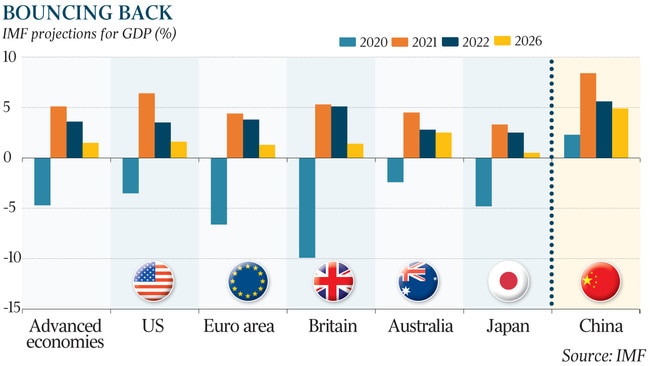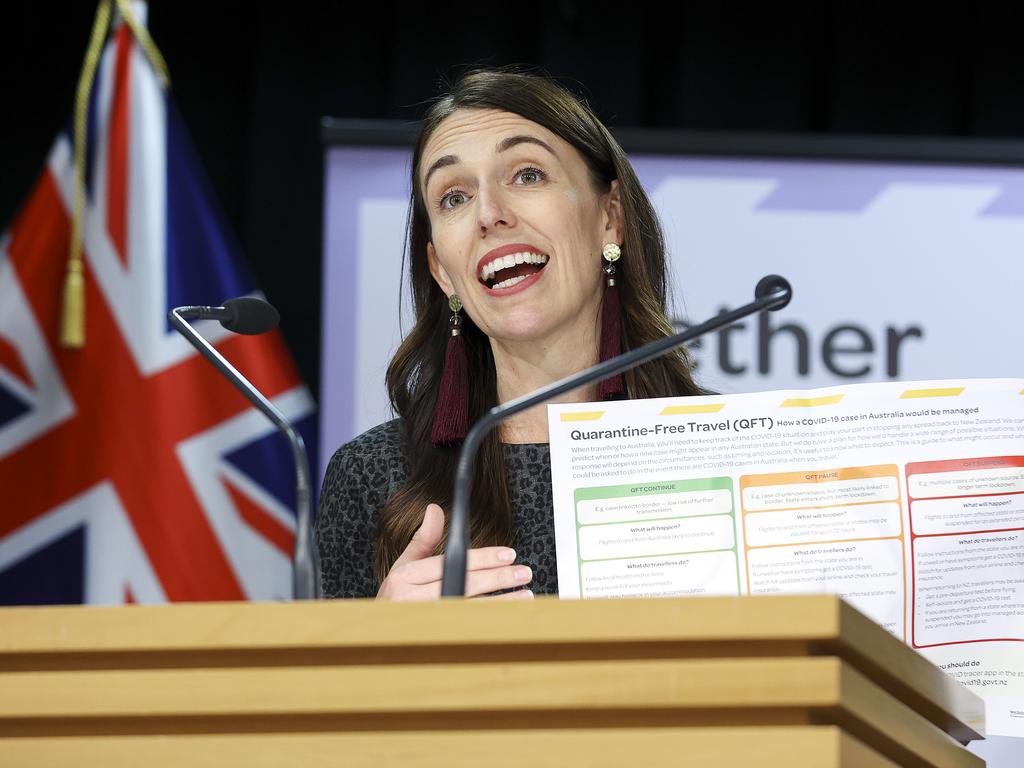International Monetary Fund forecasts stronger growth of 4.5 per cent
Australia’s economy will grow by 4.5 per cent this year, according to the International Monetary Fund.

Australia’s economy will grow by 4.5 per cent this year — faster than forecasts released only three months ago — as a “vaccine-powered recovery” pushes the global outlook higher, according to the International Monetary Fund.
The Washington-based organisation, in its latest economic statement released late on Tuesday, forecast global GDP growth of 6 per cent this year and 4.4 per cent in 2022 — an increase of 0.5 per cent and 0.2 per cent respectively since its last outlook published in January.
Josh Frydenberg said the new figures — and a faster-than-expected fall in the unemployment rate from a peak of 7.5 per cent last year to 5.8 per cent in February — showed Australia was performing “remarkably well” compared to other similarly countries.
“Having outperformed all major advanced economies on the economic front in the past 12 months, there is no other country you would rather be in than Australia,” the Treasurer said.
The new forecasts came as Reserve Bank governor Philip Lowe, in a monthly statement, said the recovery was “expected to continue with above-trend growth this year and next”.
“While there are still considerable uncertainties regarding the outlook, the central case has improved,” Dr Lowe said. “Nevertheless, wage and price pressures are subdued and are expected to remain so for some years … the economy is operating with considerable spare capacity and unemployment is still too high.”
IMF chief economist Gita Gopinath warned there remained “daunting challenges” with the coronavirus pandemic that is “yet to be defeated” more than a year since it began.
“Policymakers will need to continue supporting their economies while dealing with more limited policy space and higher debt levels than prior to the pandemic,” Ms Gopinath said.
“This requires better targeted measures to leave space for prolonged support if needed.
“With multi-speed recoveries, a tailored approach is necessary, with policies well-calibrated to the stage of the pandemic, the strength of the economic recovery, and the structural characteristics of individual countries.”

The IMF said Australia’s economic growth forecast of 4.5 per cent this year was 1 per cent higher than previously expected.
It said the US economy would grow 6.4 per cent this year and 3.5 per cent in 2022 after falling 3.5 per cent in 2020.
The Chinese and Indian economies were forecast to increase 8.6 per cent and 12.5 per cent respectively this year.
In a separate report given to the Treasury, the IMF said Australia “continues to show a strong recovery momentum” and a “favourable labour market recovery continues to support a strong rebound in private consumption, added by wealth effects from the rising house prices”.
Mr Frydenberg said: “The next stage of the government’s economic recovery plan will support private sector activity through a number of measures, including tax cuts, unprecedented business investment incentives, record levels of investment in skills and training, infrastructure and targeted support for the aviation and tourism sectors.”
The latest IMF outlook urged governments not to withdraw restrictions or economic support too quickly and to work together to ensure “universal vaccination”.
“Vaccine access is also deeply iniquitous, with 16 per cent of the world’s population having pre-purchased 50 per cent of the doses,” the document said.
“Once vaccination becomes widespread and spare capacity in healthcare systems is generally restored to pre-COVID-19 levels, restrictions can begin to be lifted,” it said, estimating that 95 million people in poor countries fell into extreme poverty last year.
Total per person income losses during the pandemic — compared to what was expected before the crisis — were almost twice as large, at 20 per cent, in poorer countries than they were in rich countries.
“These divergent recovery paths are likely to create wider gaps in living standards across countries,” the report said.








To join the conversation, please log in. Don't have an account? Register
Join the conversation, you are commenting as Logout